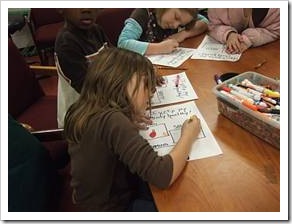A few weeks ago, when my 8-year-old daughter Noff brought her “Alien House” from school, we were all very impressed. It was a tall 3-story box house, with lights (because her alien was afraid of the dark) and she had planned and executed her plan at school and had received an A+ for the assignment. The masterpiece stood proudly on top of our fridge for over 3 weeks and during that time, everyone who passed next to it, including her older siblings, praised her and said, “Noff, your alien house is just wonderful”, “Well done”, “You’re so creative” and “You’re so smart”.
What do you think? Did we do the right thing? Should kids be praised? If so, how should kids be praised for best results?
Read How to Praise Your Kids (1) »




